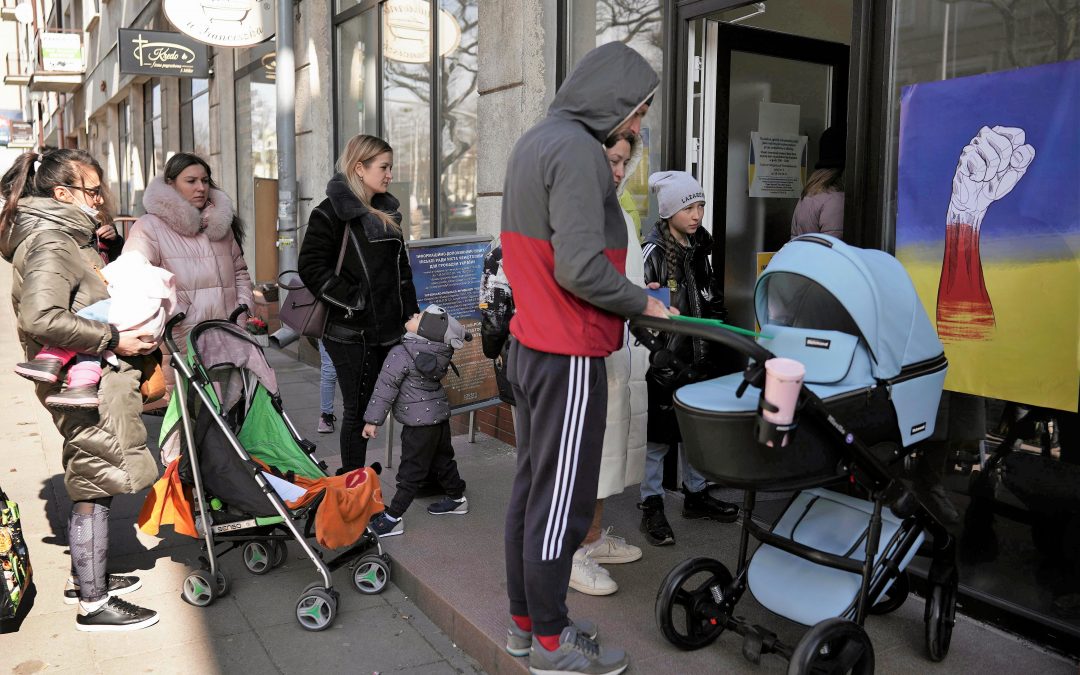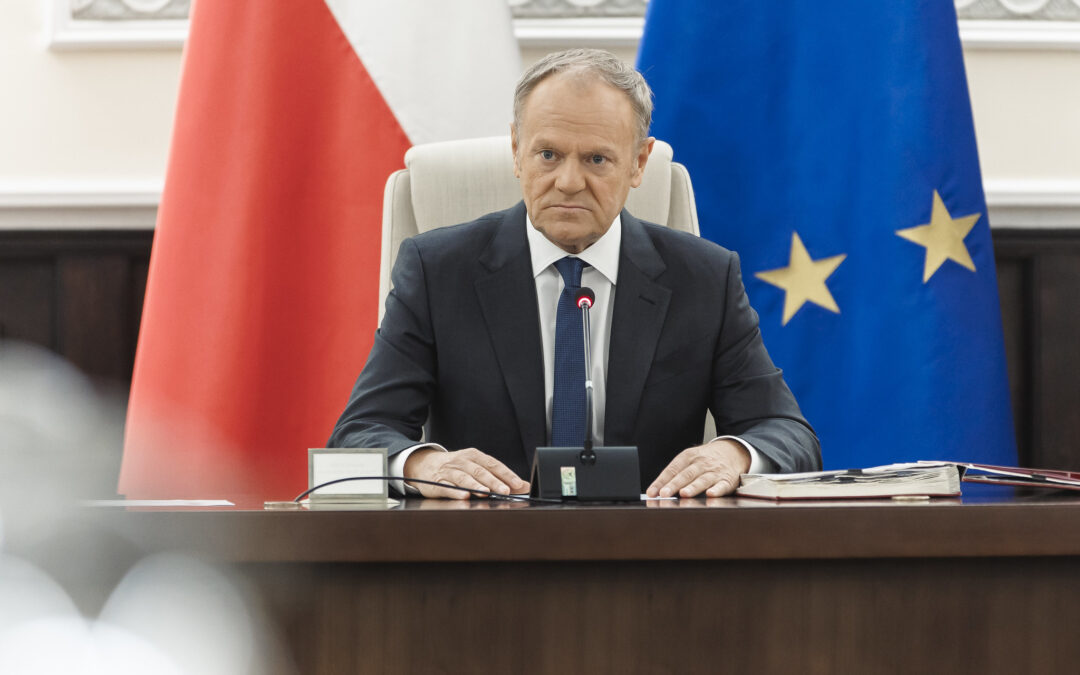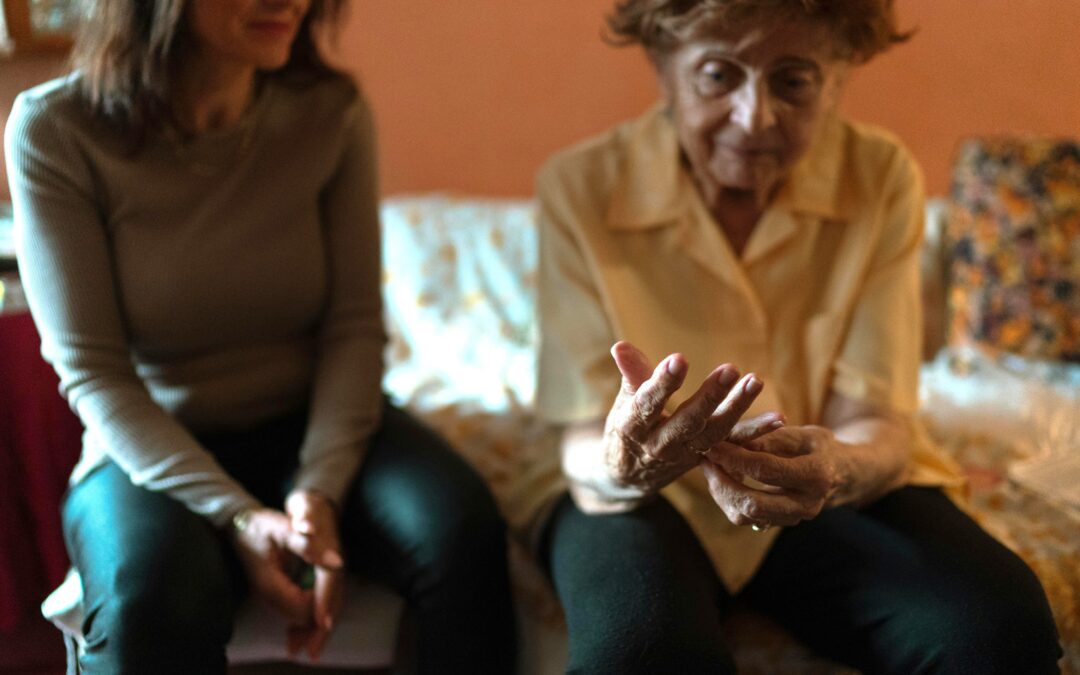Almost one million Ukrainian refugees have exercised their right to obtain a Polish national identity (PESEL) number, which gives them access to various public services and benefits. The government estimates that a total of almost two million refugees from Ukraine are currently in Poland.
It has also announced that it plans to extend financial support paid to households that are hosting refugees, estimating that around 600,000 Ukrainians are benefiting from it.
Meanwhile, the prime minister, Mateusz Morawiecki, has written to European Commission president Ursula von der Leyen with a renewed appeal for the EU to provide funds supporting member states that, like Poland, have taken in large numbers of refugees.
Wiceminister @MSWiA_GOV_PL @szefernaker w #KPRM: Od początku agresji Rosji na Ukrainę do Polski przybyło ponad 2,8 mln uchodźców. Do dziś zarejestrowano nr PESEL 970 tys. uchodźców. 95 % z nich to kobiet i dzieci, z czego 467 tys. to osoby dorosłe, a reszta to dzieci.
— Prawo i Sprawiedliwość (@pisorgpl) April 21, 2022
Announcing the PESEL figures, deputy interior minister Paweł Szefernaker revealed that among the 970,000 Ukrainian refugees to have received ID numbers so far, 95% are women and children. Children alone constitute over half.
“This shows how exceptional this migration is,” Szefernaker stressed. In an interview with RMF, he also revealed that estimates indicate almost two million refugees from Ukraine currently remain in Poland from the almost three million who have crossed its border since Russia’s invasion.
The deputy minister noted that “the situation at the border is much more stable than in the first days” of the war. Between 20,000 and 30,000 now cross each day, whereas in late February and early March the figure was regularly over 100,000 and reached a peak of 142,000.
Among the 706,000 refugees from Ukraine who have registered for a national ID number in Poland so far:
– 49.3% are children
– 44.4% women aged 18-65
– 3.4% men aged 18-65
– 3.2% people aged 65+That means over 94% are women and children https://t.co/QOMeFZfWNr
— Notes from Poland 🇵🇱 (@notesfrompoland) April 5, 2022
Szefernaker revealed that 735 million zloty (€159 million) has so far been paid out by the Polish authorities to provide assistance to refugees. He also announced that a scheme providing 40 zloty per day to households for each Ukrainian refugee they shelter will be extended for a further (and final) 60 days.
Around 600,000 refugees are benefitting from this aid, he said. But the government will now work with local authorities and businesses to help refugees “adapt” and “become self-reliant in Poland”.
The government has already been seeking to facilitate entry into the workforce for Ukrainians, making it easier for employers to register them and expediting the recognition of qualifications. Yesterday, the labour ministry announced that 77,000 Ukrainians have so far begun work through this process, up from 30,000 in early April.
Meanwhile, as of yesterday 185,000 new Ukrainian children had been registered in Polish schools since Russia’s invasion, announced the education ministry.
That means that there are still hundreds of thousands of Ukrainian children currently in Poland who are not attending local schools. Some of those, however, are undertaking distance learning by joining classes organised by Ukrainian schools, education minister Przemysław Czarnek told RMF.
Poland itself has so far borne the costs of supporting and integrating the refugees from Ukraine. But in recent weeks, a number of government figures have appealed to the EU to provide funds for this purpose.
Today, the Rzeczpospolita daily reported that Morawiecki wrote to von der Leyen on 13 April again calling for funds. He estimated that the cost to Poland this year alone will be €11 billion, but that that could rise to €24 billion if the situation in Ukraine worsens.
Deputy foreign minister Paweł Jabłoński confirmed to the newspaper that a letter had been sent, and that Morawiecki had proposed the commission fund the support for refugees by confiscating Russian state property and the assets of Russian oligarchs.
The city of Warsaw has spent 55m zloty (€11.8m) on helping refugees from Ukraine since Russia’s invasion, says mayor @trzaskowski_, who renewed his call for more financial support from the government.
The capital is housing around 300,000 refugees
https://t.co/SU6C9hYNWF— Notes from Poland 🇵🇱 (@notesfrompoland) April 13, 2022

Agnieszka Wądołowska is deputy editor-in-chief of Notes from Poland. She is a member of the European Press Prize’s preparatory committee. She was 2022 Fellow at the Entrepreneurial Journalism Creators Program at City University of New York. In 2024, she graduated from the Advanced Leadership Programme for Top Talents at the Center for Leadership. She has previously contributed to Gazeta Wyborcza, Wysokie Obcasy and Duży Format.




















